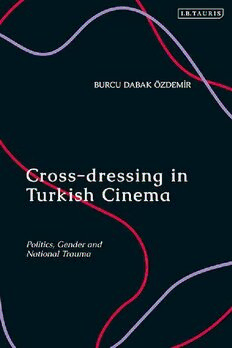
Cross-dressing in Turkish Cinema: Politics, Gender and National Trauma PDF
217 Pages·2021·5.358 MB·English
Most books are stored in the elastic cloud where traffic is expensive. For this reason, we have a limit on daily download.
Preview Cross-dressing in Turkish Cinema: Politics, Gender and National Trauma
Description:
As in western cinema, cross-dressing is a recurrent theme in Turkish film. But what do these films, whose characters typically cross-dress in order to escape enemies or other threats, tell us about the modern history of the Turkish Republic?This book examines cross-dressing in Turkish films in the context of formative events in modern Turkish political history, arguing that this trope coincides with and is illustrative of trauma induced by Turkey's multiple coup d'etats, periods of authoritarianism, enforced secularism and 'modernization'.Burcu Dabak Ozdemir analyses five case study films wherein she reveals that cross-dressing characters are able to escape persecutors and surveillance - key instruments of oppression during Turkey's coups. She shows how cross-dressing in the films examined become a destabilising force, a form of implicit resistance against state power, both political and in terms of binaries of gender and identity, and a means to register moments of national trauma. The book historicises the concept of cross-dressing in modern Turkey by examining what the author argues is a formative trauma worked through in the films examined: the westernization policies of the Kemalist regime whose most immediate symbolic presence was worn - the enforced adoption of western dress by citizens.Of interest to scholars of gender, queer, film and trauma studies, the book will also appeal to students and scholars of contemporary Turkish culture and society.
See more
The list of books you might like
Most books are stored in the elastic cloud where traffic is expensive. For this reason, we have a limit on daily download.
